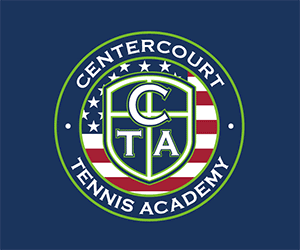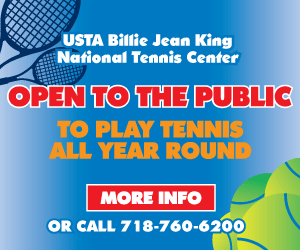Coaching: The Honest Truth

There are very few careers which essentially allow you to go to work, tell your boss what to do and then get paid for it. Tennis coaching just happens to be one of the few industries that can be characterized by this unusual dynamic between employer and employee.
One of the primary oddities of tennis is that a coach is usually hired directly by the player, rather than by a team or organization which is the case with other sports such as basketball, soccer, hockey and baseball. This characteristic is, in itself, arguably the biggest difference a tennis coach must face compared with their colleagues in the aforementioned sports. I have been lucky enough to spend the better part of the last decade working on the professional circuit and have learned that being familiar with the nuances of cultivating a productive relationship will undoubtedly have exponential benefits for everyone involved.
For a coach to be successful they must understand their role in the player’s development and always be mindful that, whether they like it or not, coaching is a customer service business, so giving the customer what they want will always be of paramount importance. Equally, the player must demonstrate a high level of maturity by understanding that seldom is what we want and what we need the same, and if one or both parties fail to adequately adapt, then the likelihood of success is limited. The first few interactions between player and coach are critical. Strong foundations must be established early on with regards to authority, acceptable behaviors and expectations as failure to do this can have devastating consequences down the line. After all, it is human nature to seek shortcuts where possible and so implementing policies that remove undesirable habits from the outset, although initially painful, will provide stability in the long run.
Andy Roddick was one of the few professional players perceptive enough to understand how difficult the player/coach relationship can be and so when he hired coach Larry Stefanki, he was clear about his expectations:
“I think he (coach Stefanki) wanted to run things and I was more than okay with that, that’s what I wanted. I wanted the guidance,” said Roddick. “I’m not going to pay a guy to be my coach and then tell him what to do. You would be surprised how prevalent that is in tennis.”
There are numerous different situations a tennis coach could be confronted with. For example, consider the change of dynamic with an NCAA college tennis coach versus that of a club/academy coach at a local tennis center, or a professional coach on tour. As a college coach, the dynamic is far more normal to that of a traditional employer/employee relationship where the player is, in essence, ‘working’ for the coach/college. This scenario can be described as a transactional relationship which is based primarily on self-interest and results. Players attending college routinely receive scholarships that cover a portion of, if not all of, their expenses (housing, food, books, insurance, travel, equipment, etc.) and cost of attendance, which allows them to receive a predetermined cash contribution towards ‘outside’ expenses from the school each semester and fully funded trips to professional tournaments.
In contrast, consider the challenges facing a club coach working for an hourly rate, or a tour coach beset with the responsibility of maximizing a player’s performance whilst simultaneously managing interests of self-preservation. In this scenario, due to the ‘shift in power’, the relationship model becomes more ‘relational’ which is based on mutual interests, gaining a deep understanding of each other and focusing on the process before results. These coaches are routinely faced with the unenviable task of having to impose reward and punishment schemes, address off court issues that may be affecting on court performance, or force their players (employer) to face some harsh realities after a disappointing loss. In this case many coaches struggle when striving to balance core beliefs and values with behavior due to the paradigm shift that this relationship entails. As coaches, if we do not have the courage to stay honest with the process and fulfill all the requirements, regardless of outcome, then we relegate ourselves to little more than a cheerleader.
Consider the cases of Rick Pitino and John Calipari who are two of the most successful college basketball coaches of the current generation. Having achieved such success at the college level they attempted a transition into the NBA, yet failed to make an impact and were unceremoniously fired for poor performance. Why is this? Was there basketball knowledge lacking? Were they not experienced enough? Of course we know that neither of these are true but the change of dynamic between coach and player shifted dramatically from transactional to relational, and so the entire coalition was derailed.
One of Calipari’s ex-NBA players, Jayson Williams, had a clear message to Calipari after he was terminated:
“If you get another shot in the NBA let it be about the players this time, The NBA game isn’t like college. This game is about the players, and you have to learn how to communicate with them. You know there’s a big difference between talking to an 18 year old and a 26 year old”.
For all of the success and achievements of the great John Wooden who guided the UCLA Bruins to an unprecedented 10 national basketball championships during a 12 year tenure and pioneered the ‘Pyramid of Success’ model, I can’t help but wonder if he too would have experienced the same fate had he tried his hand in the NBA.
It is no surprise that elite touring players are not only more mature, but also emotionally superior compared with their lower-ranked counterparts when dealing with all facets of their career, in particular their coaching team. Working for Star River team (China), we have several top 100 WTA players competing internationally throughout the year including Poland’s Magda Linette, a rising star on the WTA tour. This provides a perfect illustration of how first focusing on the process of building a relationship with her coach, Izo Zunic, who shares common goals and values, in addition to being knowledgeable about the game has huge benefits in the long run. Linette and Zunic have been collaborating for over four years and 2017 was a breakthrough for the team with Linette qualifying at both Indian Wells and Miami, and reaching a career-best third-round at this year’s French Open. The journey wasn’t always easy for the team who suffered their fair share of setbacks over the years but remained staunch in the face of adversity while remaining committed to strengthening their relationship.
In contrast, I have personal experience of working with players who undervalue the importance of building and sustaining a formidable relationship, preferring to neglect the long term by seeking excuses or advice from almost anyone. At all times, acknowledging that tennis is a business and it’s important to have a separation of emotion from the pursuit of improvement, because in order to get something you have never had, you must do something you have never done.
South Carolina men’s basketball coach Frank Martin recently held a press conference that epitomizes the dynamic between coach and player when he spoke about the idea of ‘tough love’:
“People love you, they tell you the truth. They don’t lie to you. So I hear tough love, and I’ve been hearing it for a long time. I don’t know what it is. If you love people, then that means you’re honest. That means that there is trust in your relationship.”
In essence, what Coach Martin was suggesting is whether or not someone wants to hear something should in no way determine whether or not it should be said. Ivan Lendl provides a perfect tennis example of how an open and honest player-coach relationship will rapidly correlate with improved results. Since Andy Murray began his collaboration with Lendl he has won three Grand Slam titles, and achieved the world number one ranking on the ATP tour. However, Murray who is often perceived as negative and emotional on court exhibited remarkable foresight and maturity to understand the ‘big picture’ by allowing coach Lendl to take full command of the project:
“I think he’s always been very honest with me,” said Murray. “He’s always told me exactly what he thought. And in tennis, it’s not always that easy to do in a player-coach relationship. The player is sometimes the one in charge”.
Coaches live and breathe the game, they not only have the benefit of experience but the added advantage that they are on the ‘outside looking in’ giving them a far more objective view on what needs to be done.
As a player, you want to receive the maximum benefit from the coach and so there is a responsibility on you to facilitate an environment that allows honesty and openness. You should want your coach to be tough with you, especially at the start, as this is an excellent indication that not only is the coach confident in his abilities but that he cares enough to say and do what is necessary. It is unquestionably the coach’s job to understand that every player is different and must be treated accordingly, but expect that if your coach really cares, he will have you working on fixing your weaknesses, pushing you to the edges of your mental and physical capabilities and working outside of your comfort zone. In essence, he/she will have you doing the things you are least proficient at, which by its very nature will mean you will be doing things you least like to do.
In the 21st-century, people search for instant gratification. But understanding that the road to the ‘top’ (wherever that may be) is a marathon not a sprint, and so having someone who knows your history and understands how you operate is a priceless commodity that you should cherish. Setting common goals together and reviewing them periodically will help both parties work more efficiently, and remaining conscious of the fact that when one fails, you both fail will keep you focused on the process and not the result. Knowing how you will likely behave in certain situations, handle pressure at important times, react in the face of adversity and deal with criticisms are all vital components of a successful interpersonal relationship; taking the time to self-reflect and familiarize yourself with your own personality traits will be essential in expediting the development process. I can say that had I known at the start of my coaching career what I know now, both I and my players would almost certainly have been exponentially greater. In any relationship, work or personal, cultivating trust, respect and loyalty are vital in determining success and longevity. One thing I can say with certainty is as my experience improves I am acutely aware of the idea that I know less and less about more and more.






